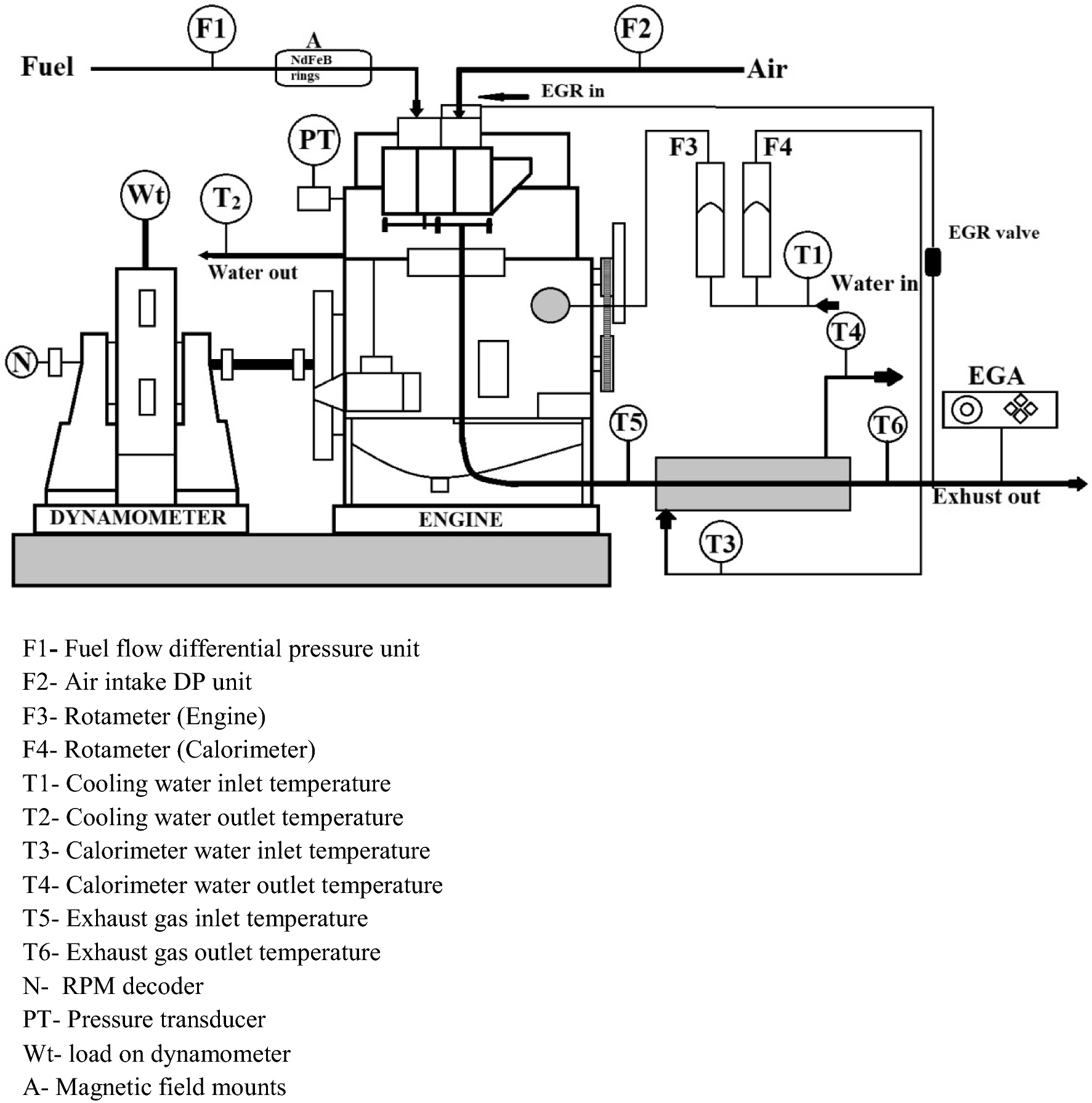Experimental Analysis of Synergetic Effect of Part-Cooled Exhaust Gas Recirculation on Magnetic Field-Assisted Combustion of Liquefied Petroleum Gas
Magnetic field-assisted combustion has been under the focus of research for the last three decades around the globe. The effects of strong uniform and gradient magnetic fields and their applications have been experimented on IC engine.
Published in Materials and Mechanical Engineering
Like
Be the first to like this
The present work investigates the synergetic effect of part-cooled EGR on the magnetic field-assisted combustion of liquefied petroleum gas in a multicylinder MPFI spark-ignited engine modified for neat LPG operation. Sintered neo-delta magnets with radial magnetization pattern of four different magnetic intensities (0G, 3200G, 4800G and 6400G) are fastened to the fuel line near to the gas injector with a non-magnetic stainless steel integument to prevent any loss of magnetic intensities during the operation. A portion of the exhaust gas is channelled to an intercooler and an optimum percentage of the partially cooled gases are inducted into the inlet manifold for combustion.
Follow the Topic
Magnetic Materials
Physical Sciences > Chemistry > Materials Chemistry > Magnetic Materials
Internal Combustion Engines
Technology and Engineering > Mechanical Engineering > Vehicle Engineering > Engine Technology > Internal Combustion Engines


Please sign in or register for FREE
If you are a registered user on Research Communities by Springer Nature, please sign in
Please read this article and give your opinion. If you disagree with anything, please state the place and reason where you disagree.
https://docs.google.com/document/d/12584o9sol-RpSsbLonLkIewdVtiwvqX7gHy_k8CHTg8/edit?usp=sharing